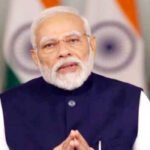Rome/New Delhi, Nov 25 (UNI) India is always willing to contribute meaningfully to any international diplomatic endeavours towards resolution of the Middle East and Ukraine conflicts, External Affairs Minister S Jaishankar said today.
Addressing the Rome Mediterranean Dialogue 2024, EAM elaborated on the two ongoing conflicts and on India’s relations with the Mediterranean and the Middle Eastern region.
He also said the India-Middle East-Europe Economic Corridor (IMEEC) is proceeding ahead, and the India-Israel-UAE-US (I2U2) grouping is expected to be more active in times to come.
On the Ukraine and Middle East conflicts, EAM said that due to the two conflicts the world is experiencing severe stress, and supply chains are insecure, and connectivity, especially maritime, stands disrupted.
EAM said the situation in the Middle East “is obviously deeply concerning, both for what has happened and what may still come. India unequivocally condemns terrorism and hostage taking. It also regards large scale civilian casualties in military operations to be unacceptable. International humanitarian law cannot be disregarded.”
“In immediate terms, we should all support a ceasefire. India has also extended relief directly and through UNRWA. In the longer term, it is imperative that the future of the Palestinian people be addressed. India favours a two-State solution.”
“Our concerns have also been increasing on the widening of the conflict. We have been in regular touch with both Israel and Iran at the highest levels to advocate restraint and enhance communication. Where Lebanon is concerned, there is an Indian contingent like Italy, that is part of UNIFIL. With regard to the Gulf of Aden and the northern Arabian sea, Indian naval ships have been deployed since last year to protect commercial shipping. Given our capacity to engage various parties, we are always willing to contribute meaningfully to any international diplomatic endeavours.”
On Ukraine, he said the conflict is well into its third year. “The continuation of this conflict has serious destabilizing consequences, including for the Mediterranean. What is clear is that no solution is going to emerge from the battlefield. India has consistently held the view that disputes in this era cannot be settled by war. There must be a return to dialogue and diplomacy; the sooner the better. This is a widespread sentiment in the world today; especially in the Global South.”
“Since June this year, Prime Minister Narendra Modi has personally engaged leaders of both Russia and Ukraine to this end. This has included his visiting Moscow and Kyiv. Our senior officials remain in continuous touch. We firmly believe that those who have the ability to explore finding common ground must step up to that responsibility.”
On the relevance of India to the Mediterranean region, he said India’s annual trade with the Mediterranean nations is about USD 80 billion, and has a diaspora there of 460,000, with about 40% of that in Italy. India’s key interests are in fertilizers, energy, water technology, diamonds, defence and cyber, and India also has significant projects underway in the form of airports, ports, railway, steel, green hydrogen, phosphates and submarine cables.
On India’s relations with the Middle East, he said the trade with the Gulf alone is in between 160-180 billion USD annually. The rest of MENA adds about another USD 20 billion. More than nine million Indians live and work in the Middle East. “Whether it is energy, technology, industrial projects or services, we have big stakes. It is also a region to which we are connected in history, culture and security.”
“For these very reasons, you may expect India’s presence and activities to grow, especially as we move from being the fifth largest economy in the world to the third.
“The Mediterranean presents both opportunities and risks in an uncertain and volatile world. Beyond extrapolating current trends, the new element of our relationship will be connectivity. The IMEEC (India-Middle East-Europe Economic Corridor) that was announced in September 2023 can be a game changer. The conflict underway currently in the Middle East has undoubtedly been a major complication. But the IMEEC is proceeding ahead on the Eastern side, especially between India, UAE and Saudi Arabia. I also flag your attention to the I2U2 (India-Israel-UAE-US) grouping. Expect it to be more active in times to come,” he added.
In a post on X, the EAM said:
“Pleased to address the 10th edition of @RomeMEDialogues today.
“Underlined India’s robust trade, investment and political linkages with the Mediterranean and West Asia/Middle East. And our commitment to further regional connectivity and cooperation through IMEEC and I2U2.
“Spoke about the ongoing conflicts in West Asia and Ukraine and the need for diplomatic initiatives.”











